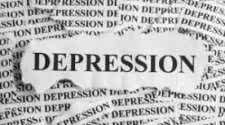Growth Hormone Research: Does GH Alleviate Symptoms of Depression?

Growth Hormone in the Science World
Common practice among drug-using athletes involves "stacking," a term for combining various drugs. In some cases, this produces a
potentiating effect, as when insulin is combined with anabolic steroids. In other instances, combining certain drugs can neutralize
the side effects they would normally produce if taken alone. An example of this phenomenon occurs when combining growth hormone with
insulin. Growth hormone increases an individual's blood-sugar (i.e., glucose) level; insulin lowers it. Growth hormone likewise
increases muscle-protein synthesis, while insulin produces an anticatabolic effect in the same tissue.
One common side effect encountered after getting off anabolic steroids is depression. When people take steroids, certain brain
enzymes that degrade mood-uplifting chemicals are inhibited. When those same people cease taking steroids, however, the mood-elevating
chemicals are rapidly broken down, which can lead to depression.
A recent study published in Clinical Endocrinology (1996:44, 319-324) found that growth hormone may alleviate symptoms of depression
by increasing a brain chemical called dopamine. Significantly, this is the same brain substance associated with the elation that comes
from cocaine use. It's also associated with sexual pleasure, and it is the main neurotransmitter in the pleasure center" of the brain.
The study also showed that growth hormone increased the conversion of inactive thyroid hormone (T4) into active T3 in the brain. This,
too, would have an anti-depressive effect. The question now is: Will using growth hormone after getting off steroids ease depression?
The answer awaits further research.